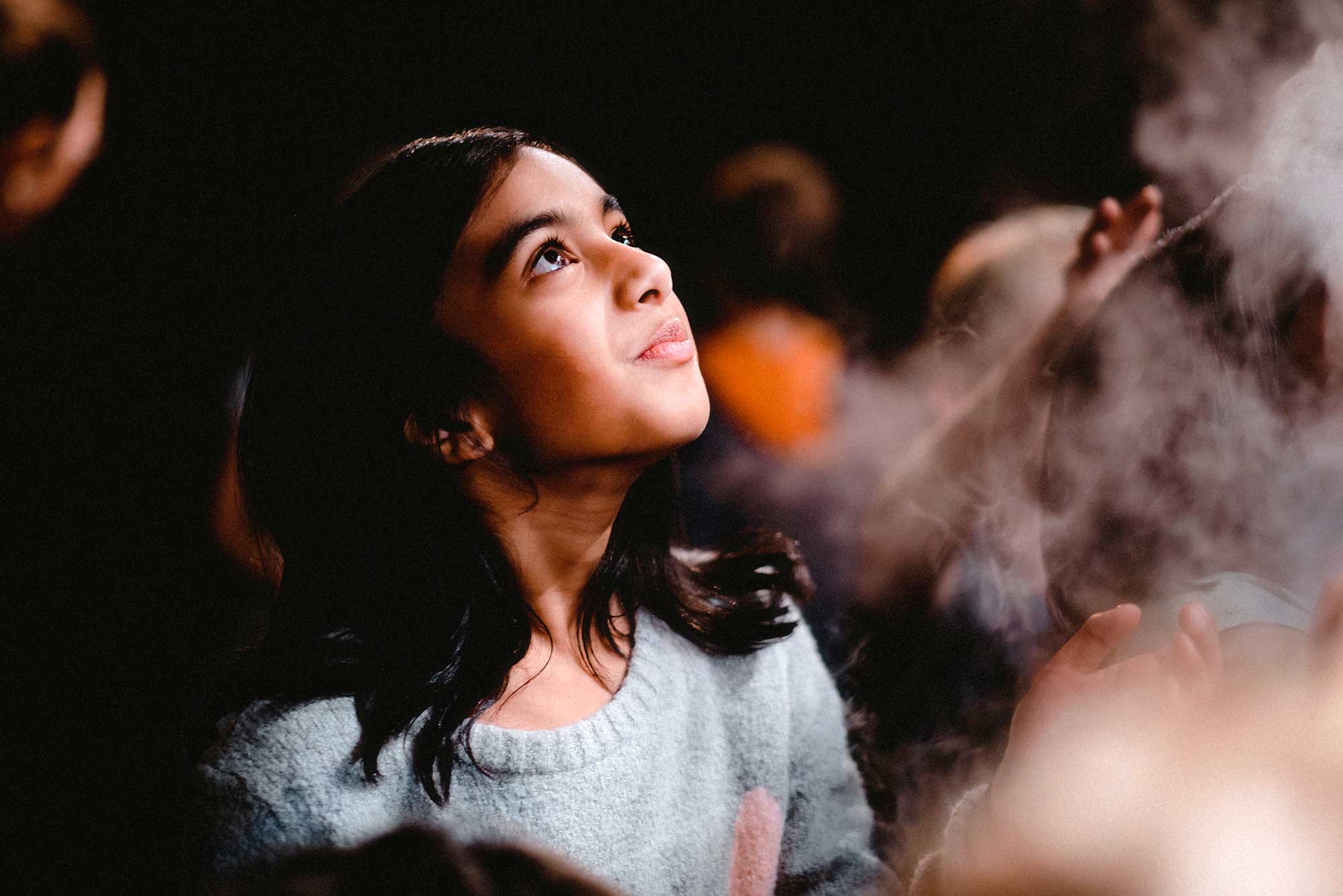The pandemic has impacted our lives significantly. At Alberta Blue Cross®, one of the ways we responded was by shifting our community support involvements to address rising needs specifically related to the pandemic in rural Alberta. This included implementing our COVID Community Roots Program. We’re pleased to share the results of this program, along with some inspiring stories of how the funds were used to benefit communities across Alberta.
In partnership with the Alberta Recreation and Parks Association and Communities Choosewell, our program provided grants up to $5,000 to grassroots, community-led initiatives in rural and remote locations to help them navigate the COVID-19 pandemic. Focusing in areas outside of Edmonton and Calgary, the program supported social, mental, emotional and physical well-being programs and services for vulnerable populations.
The program was introduced in 2020 and extended to June 2021 due to a high level of interest and participation. By the time the program wrapped up, we received 219 applications and awarded a total of $262,000 to 59 projects across Alberta. The Alberta Recreation and Parks Association and Communities Choosewell helped promote the program and review applications. Funding for the program was provided through our community foundation.
“These projects have been a huge boost to support the mental, emotional, social and physical well-being of people and communities across Alberta through the pandemic,” said Brian Geislinger, vice-president of Corporate Relations with Alberta Blue Cross®. “We’re so glad to be able to support these initiatives.”
Community gardens and programs
It’s no secret that plants make people happy and there are many health benefits to gardening. With many things closed during the pandemic, gardening became a popular activity for families and individuals of all ages. A significant number of applications received for the COVID Community Roots program in 2021 focused on community gardens and gardening programs.
Agriculture for Life (Ag for Life) in Foothills used awarded funds to create an online Junior Garden Club, which serves 170 children, aged eight to 12 years, and their families across Alberta. From March to October, the virtual program provides a space for youth to safely engage in gardening and cooking activities from home. The Calgary Horticultural Society helped Ag for Life by reviewing program content, providing gardening expertise and promoting and advertising the club to its members. The Junior Garden Club connects youth to food and the environment by encouraging interest in nature and appreciation of where food comes from and the amount of time and effort it takes to produce. Learning how to grow and cook one’s own food is key to promoting good health and developing healthy eating habits. Furthermore, gardening and cooking help kids build confidence and patience.
With the restrictions on gathering and large events, the Redwood Meadows Community Association wanted to provide a new and unique opportunity for community members to safely foster and build relationships while working together to create an inclusive and productive space for neighbours of all ages. Its community garden will promote health and wellness through physical activity, stress management and the availability of fresh vegetables. The association will also be providing educational opportunities, including environmental stewardship and protection, to share the joys of gardening with children.
Some of the funded community garden projects are helping to address food security, like the Community Outreach Program Enhancement in Grande Cache, which is also demonstrating the benefits of gardening for mental health by creating mini pop-up gardens. Other projects, like in the Village of Donalda, are working to offset increased demand of the foodbank by establishing a sustainable, long term and low-cost solution to strengthen the community for years to come.
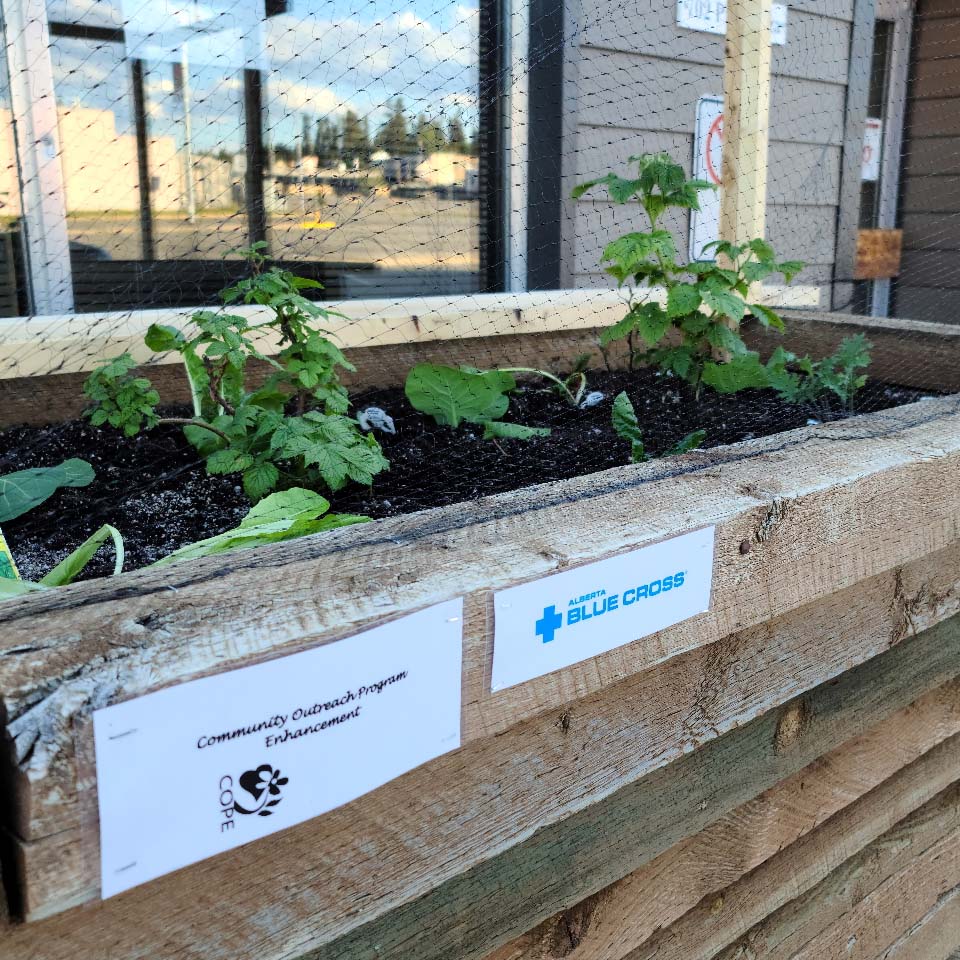
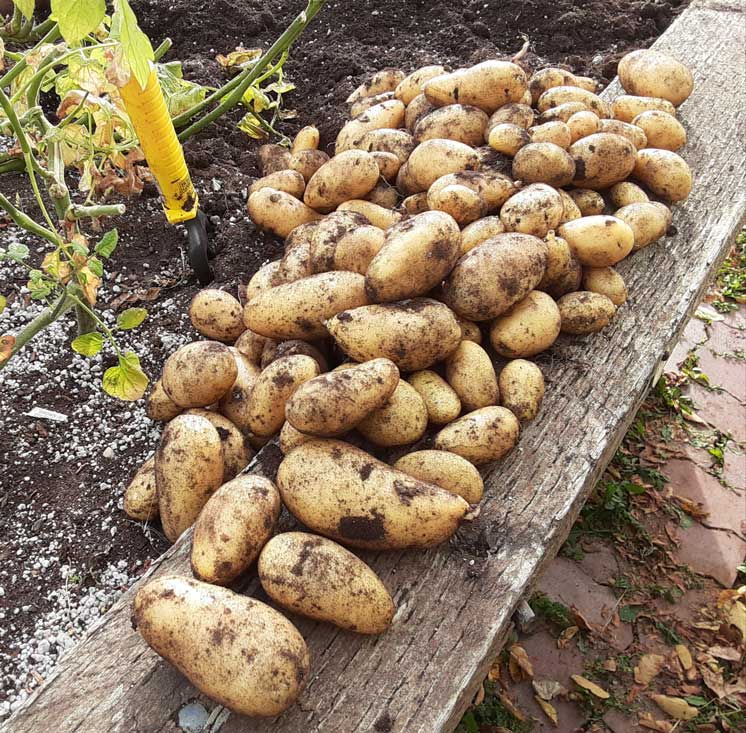
Lending libraries
The Mary C. Moore Public Library in Lacombe also jumped on the gardening trend but took a different approach by allowing residents to access gardening books and workshops, take-home gardening kits and a seed library. The library used the awarded funds to help support community needs for gardening opportunities, both at home and in the community, and create space and access to all people regardless of age, race, ability or financial status.
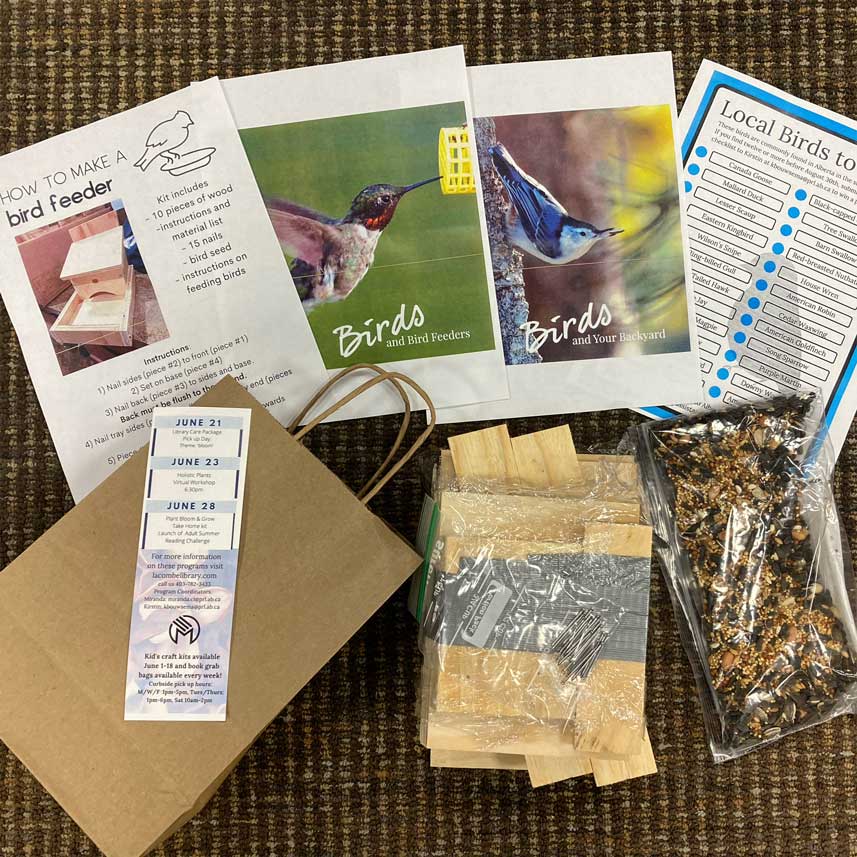
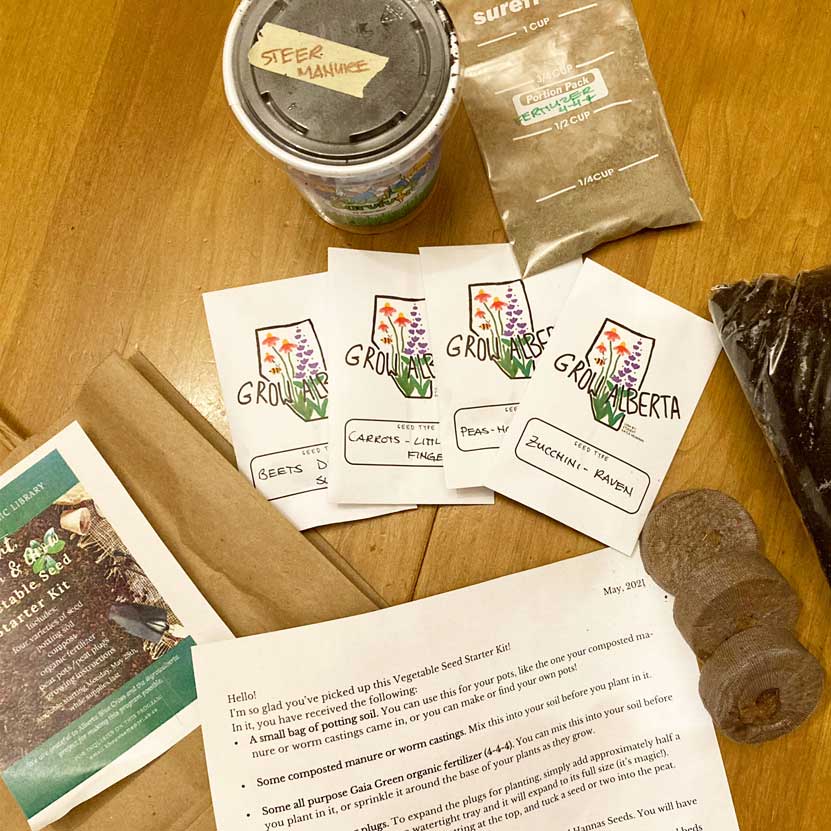
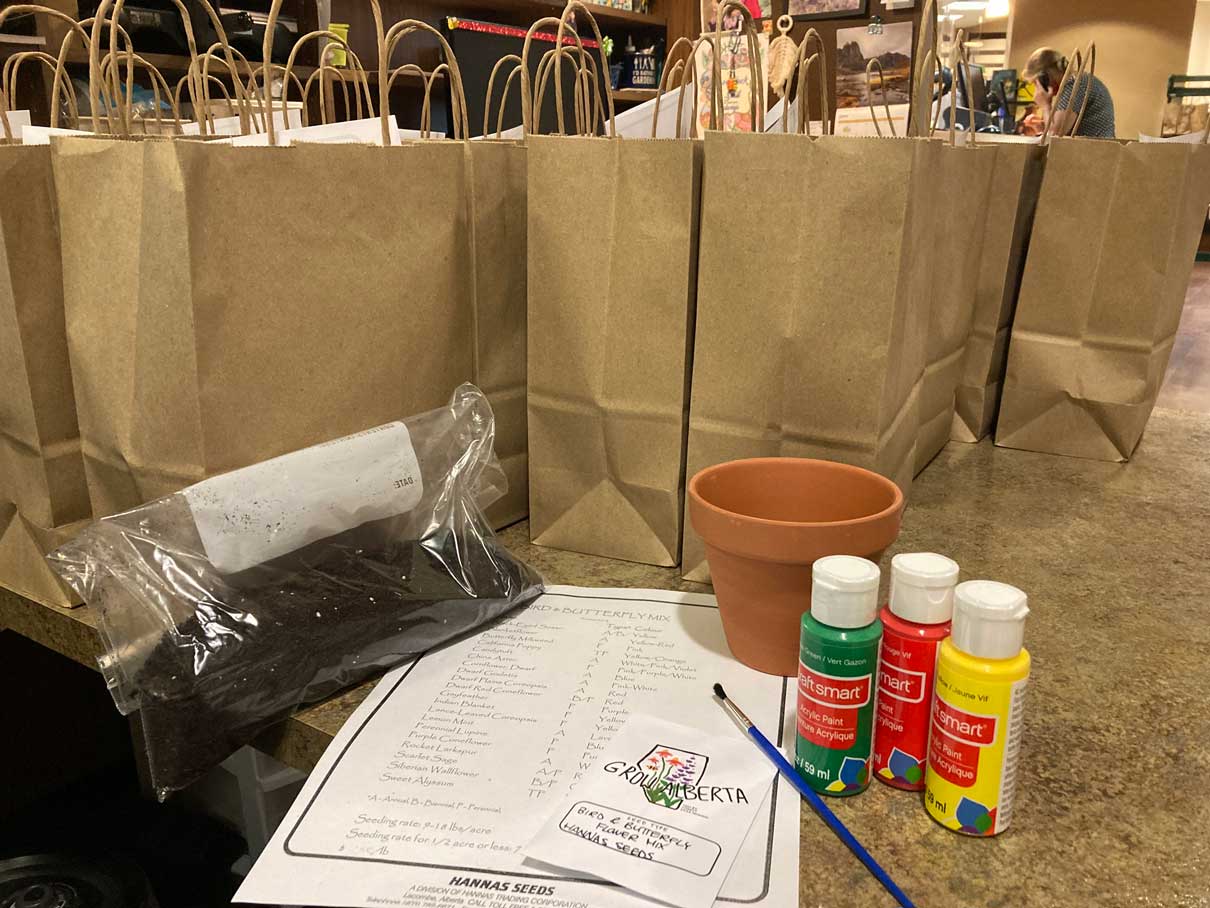
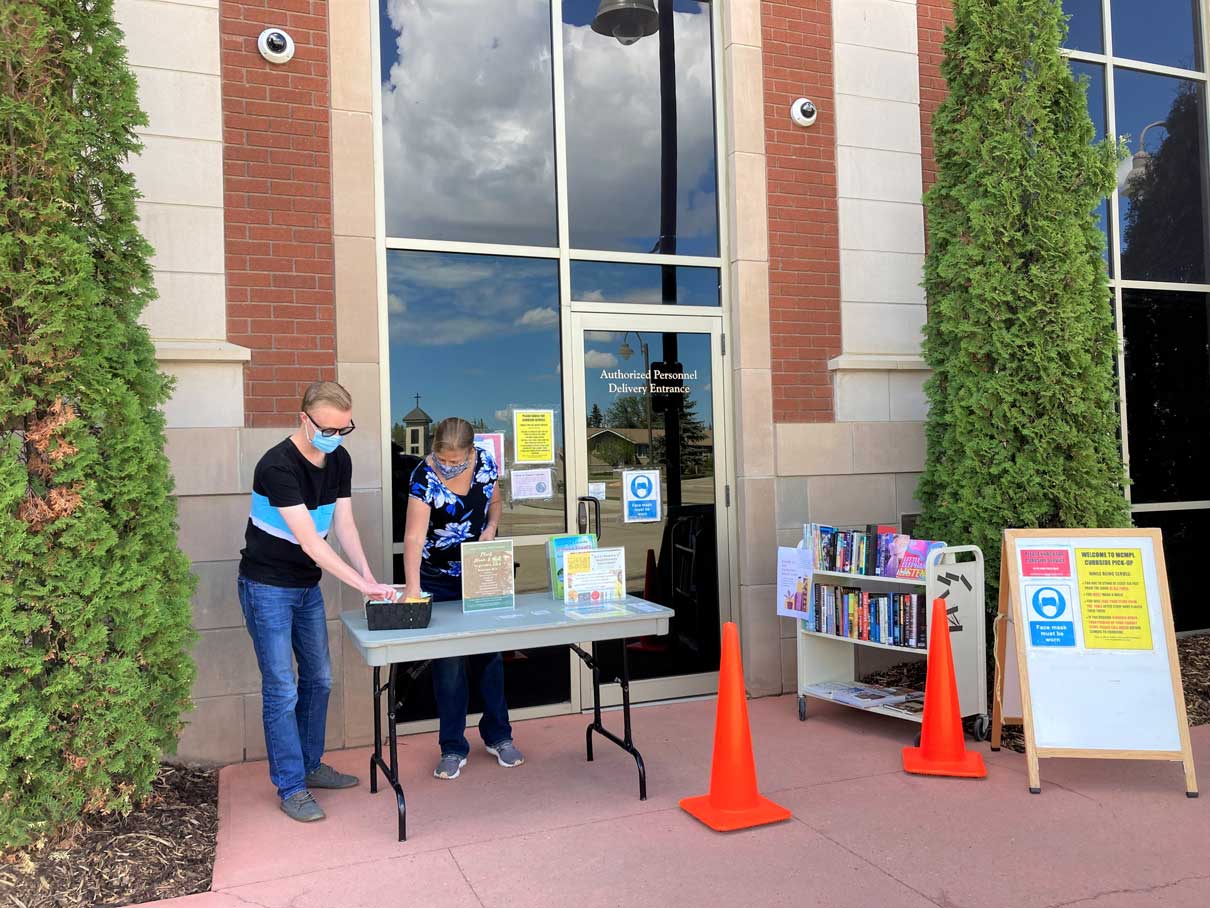
Meanwhile, the Exshaw Library Society—which serves more than 200 people—wanted to help keep families, youth and adults of the Hamlet of Exshaw, the Municipal of District Bighorn and the adjacent Stoney Nakoda First Nation engaged in learning, reading and exploring new experiences. With the option of contactless pick up for books and related materials, the society’s BIN-GENIOUS project enables safe access to library resources and learning tools to support parents in teaching and entertaining their children while extracurricular activities were suspended due to the COVID-19 pandemic. Community members can sign out a variety of themed bins containing library materials that are regularly checked out and in demand. For example, the nature bin includes binoculars and field guides to many species, and the insect bin includes magnifiers, stories and fun facts about bugs.
The awarded funds help the society cover ongoing costs for librarian hours to purchase, sanitize and resupply materials for the bins. The society also purchased Chromebooks that will be made available, along with a dongle, to library users who may not have Internet access. When library patrons pick up their bins, the library welcomes suggestions for themes and new bins will be created if funding permits.
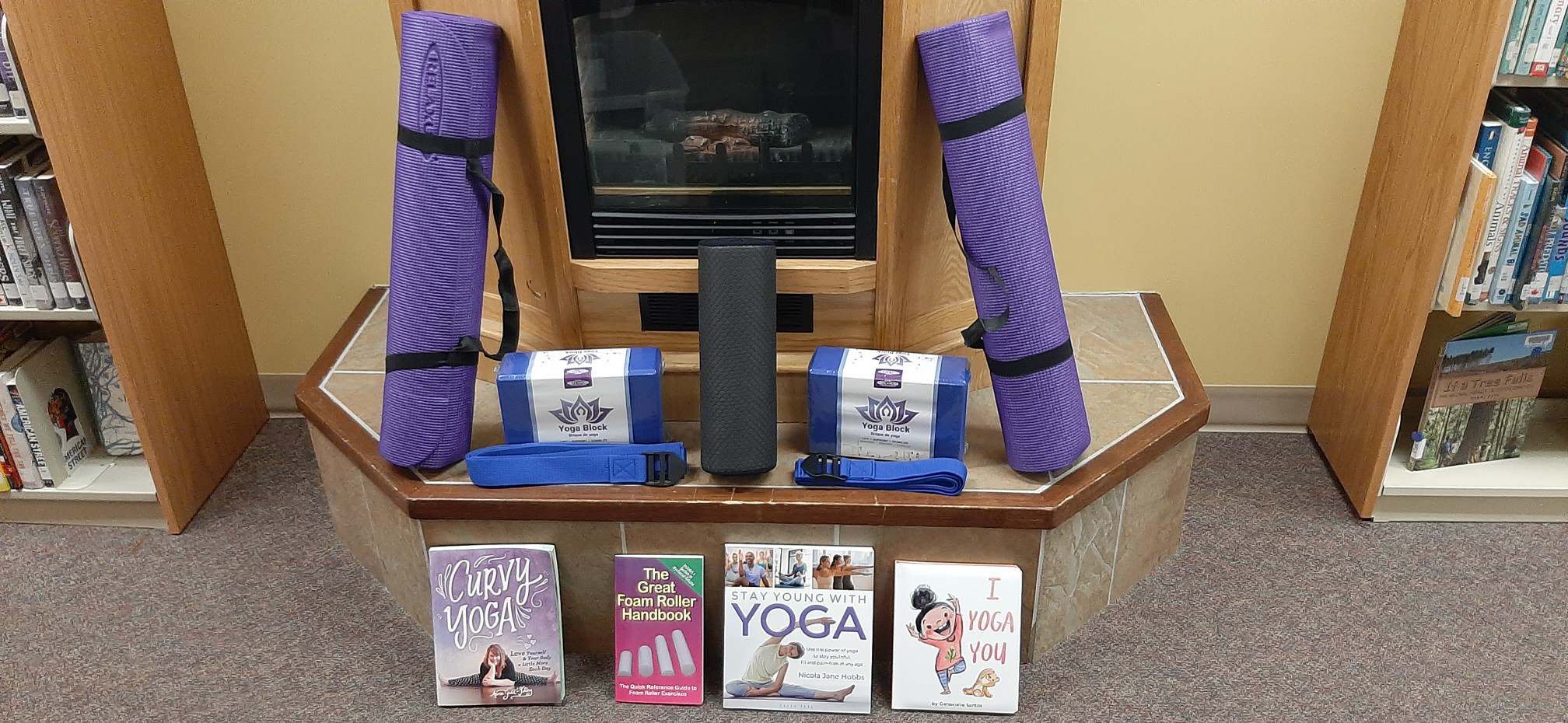
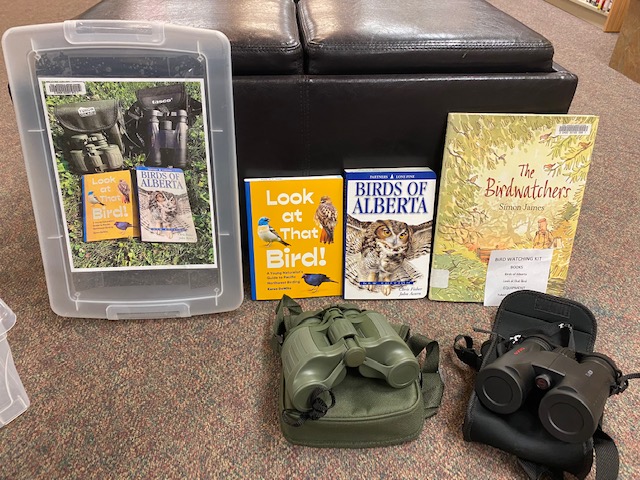
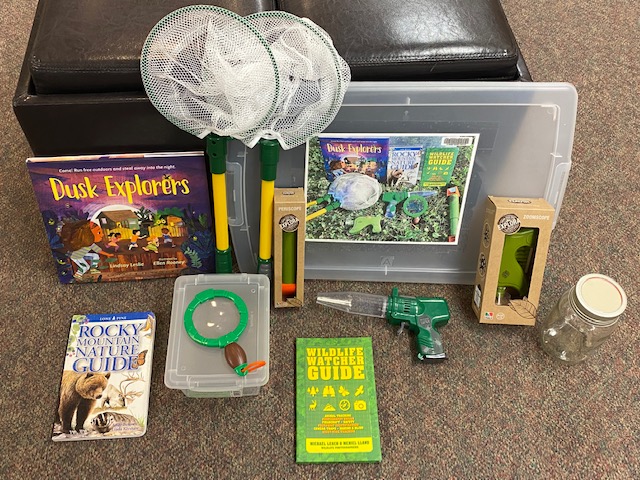
The project will go a long way to meet the needs of library patrons—moving the library from a place to borrow books to a hub for learning, information, entertainment and community connection—and will have a positive impact on the community.
“What a fantastic way to get us moving again!”
– Exshaw Library Society yoga and wellness bin user
“We are truly thrilled to receive this generous grant and are excited to turn our plans into reality. The community of library users we serve will benefit from your generosity.”
– Patricia Gaudet, Exshaw Library Society treasurer
Other communities, such the Rimbey Neighbourhood Place Society in Ponoka County are giving individuals the opportunity to borrow a variety of board games, puzzles and equipment for outdoor games through a lending library. To support rural and isolated individuals and families in need connection, the society partnered with the Ponoka Jubilee Library, which houses and manages the checking in and out of the puzzles and games. The program gives community members access to activities and games they couldn’t afford otherwise and provides a means of connection. The society has served 50 individuals in the first two months of starting its program and is anticipating serving many more in the months and years to come.
Workshops and educational programs
The Vegreville and District Family and Community Support Services (FCSS) used grant funds to provide a flexible and accessible program and safe space for seniors to share their stories and build connections.
Participants had input in selecting the sessions, which were offered at varying times and days of the week, virtually or by phone. Each session came with a package in large print and easy to understand and began with a welcoming and inclusive introduction to set the tone.
FCSS collaborated with the Mental Health Capacity Building Project to provide sessions on improving mental health during the pandemic, with Alberta Health Services for sessions on exercise and diet tips, and with local businesses such as law firms and home organization companies.
The awarded funds allowed FCSS to reach seniors it typically doesn’t see at its regular programming and reduced isolation among participants. Seniors are now more aware of the resources available to them and know where in the community to receive support when they need it, allowing them to address mental health issues like depression and anxiety. Seniors also now have materials in their homes that they can use at any time.
“It was great to have the Alberta Blue Cross® funding to provide this program in the community. It’s well attended and is making a difference for isolated. Participates were able to build relationships and connections with each other.”
– Vegreville and District Family and Community Support Services representative
The Town of Devon used awarded funds to purchase supplies and cover facilitator fees to run physically distanced and in-person workshops to reduce isolation and increase community connection. These workshops offered low-cost and free programming to a total of 808 people, including vulnerable and low-income youth, isolated seniors and individuals with disabilities and mental health issues.
The town’s Mood Booster initiative gave the opportunity for residents to engage in mental health and activity workshops, such as paint night. Residents could also have activity kits delivered to their doorsteps, including ones for self-care and anti-boredom, with access to resources available in their community for support. Their Healthy Habits initiative hosted weekly virtual nutrition and fitness workshops.
“During a time when residents couldn’t spend additional dollars on wellness, the activity kits and virtual programs brought joy into their homes and allowed them to connect and engage in healthy habits. We received many notes of appreciation from our residents who took part in this program.”
– Katelynn Stoesz, Community Programs & Events coordinator, Town of Devon
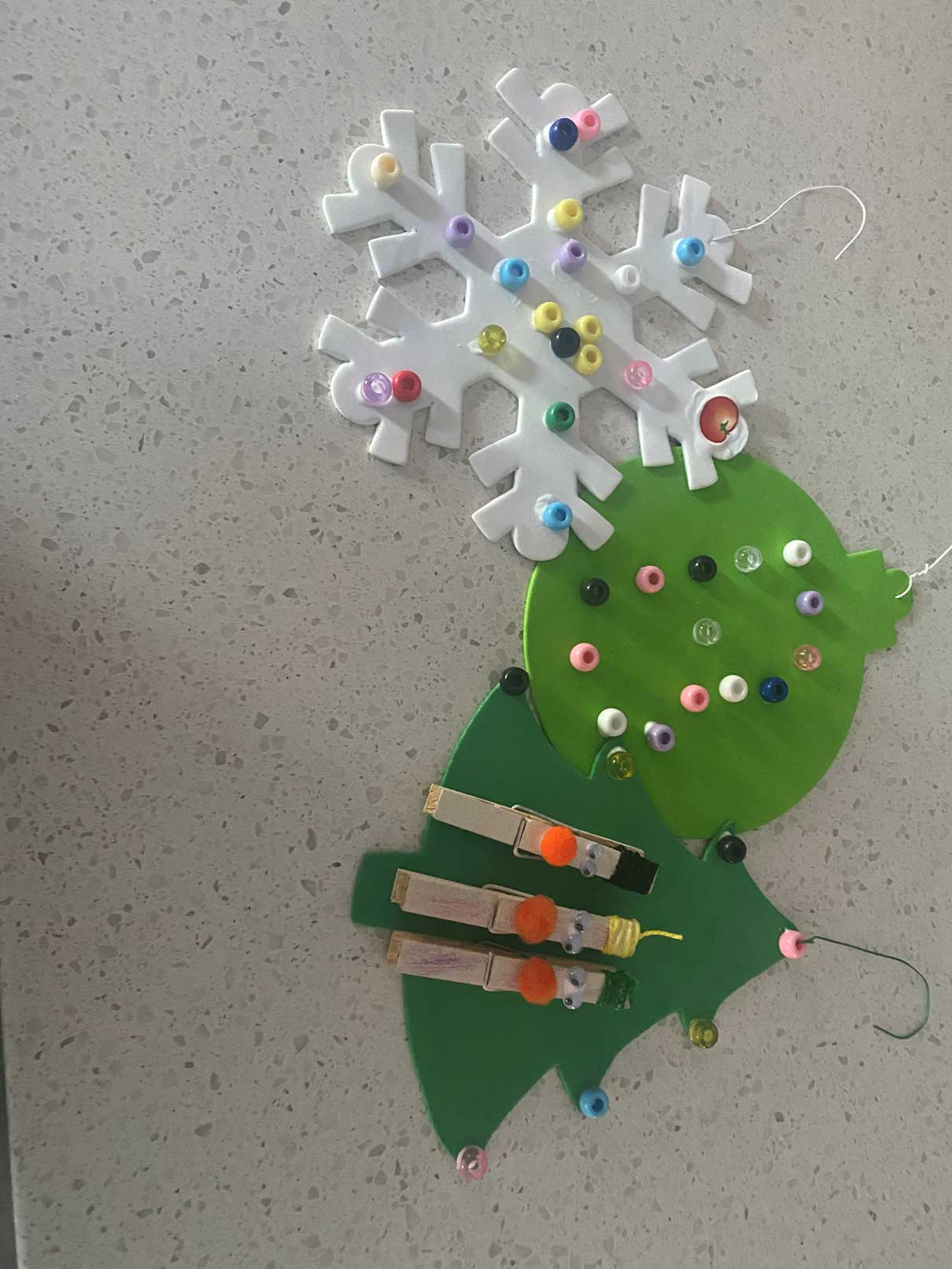
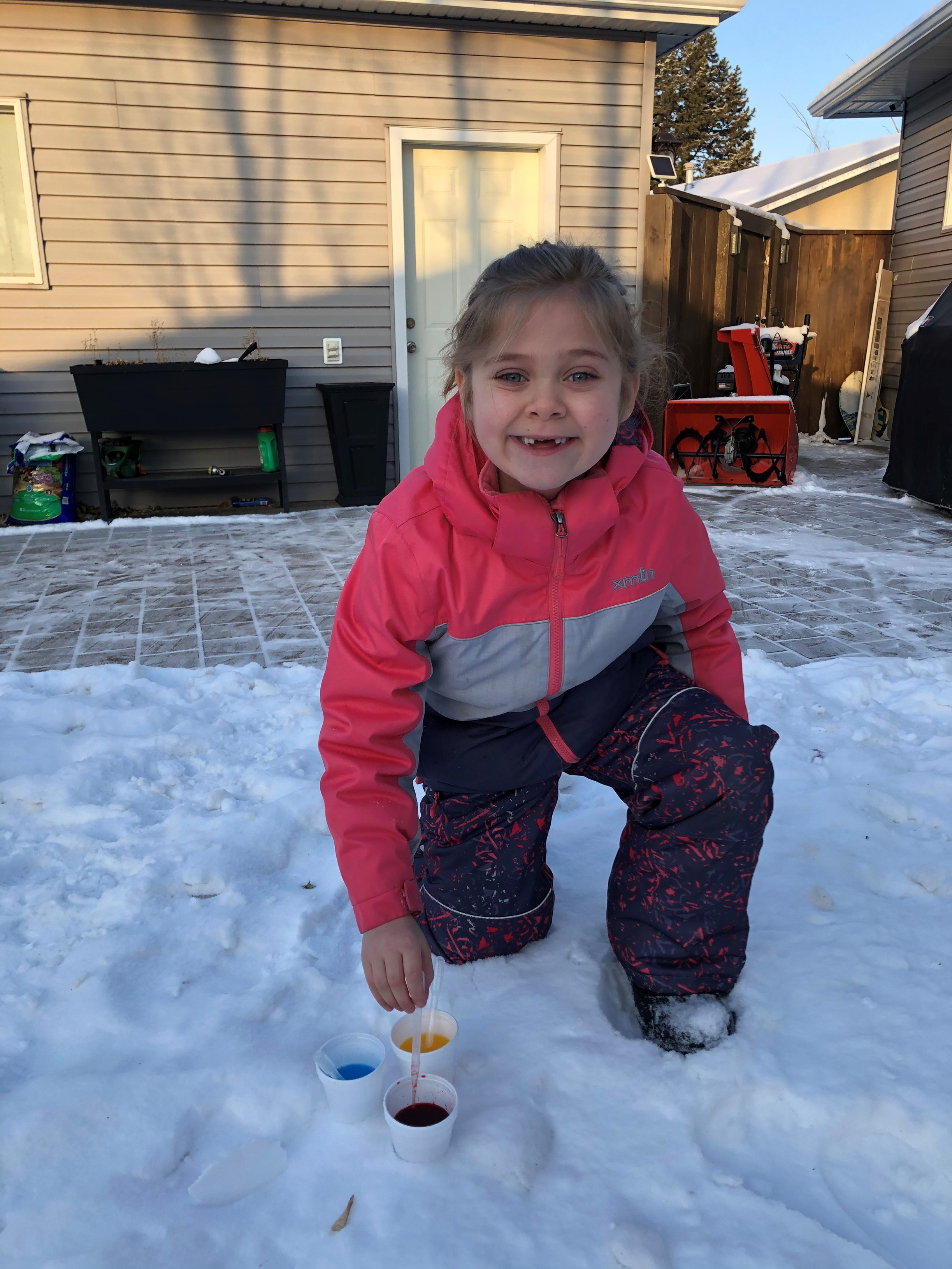
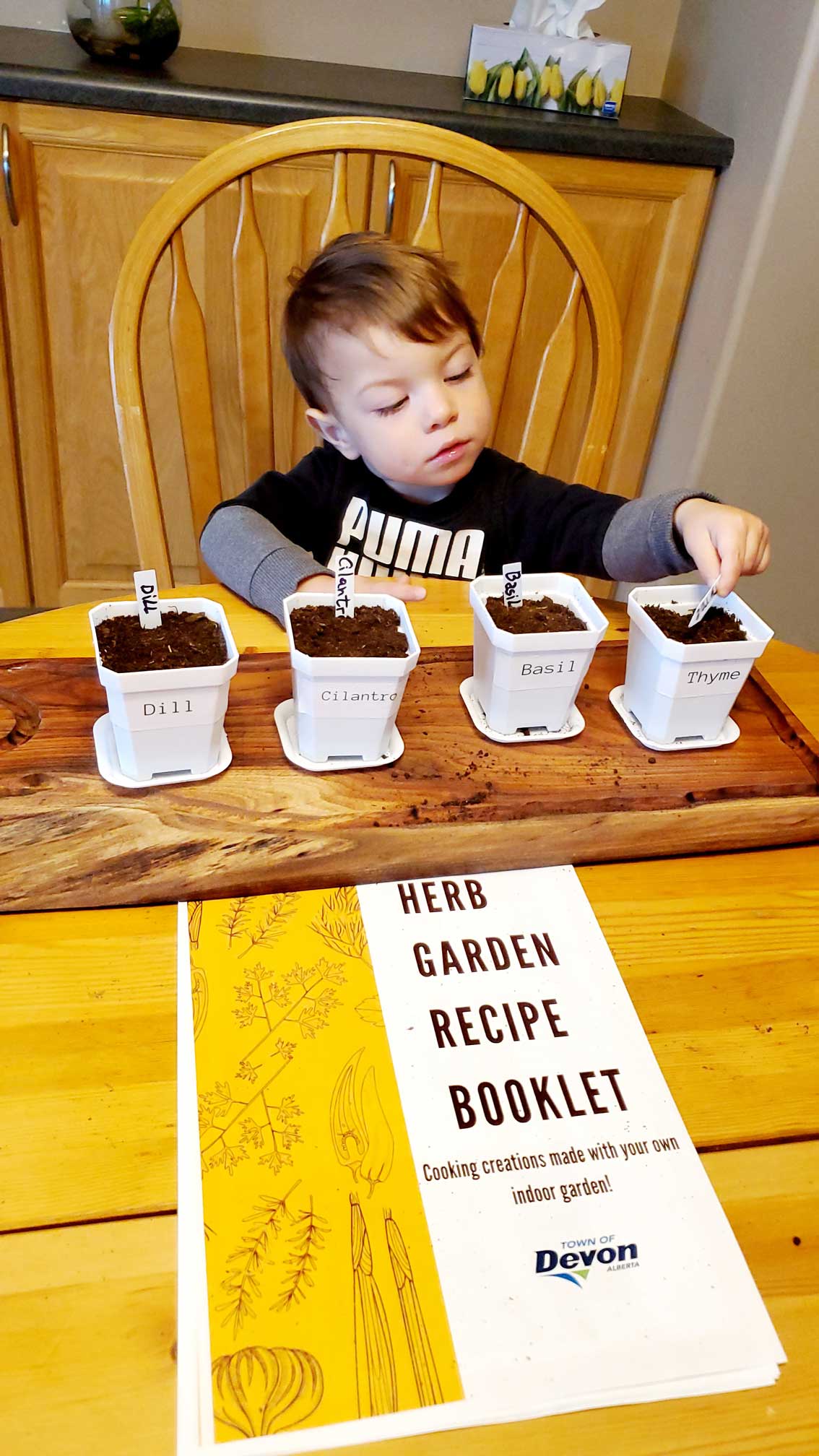
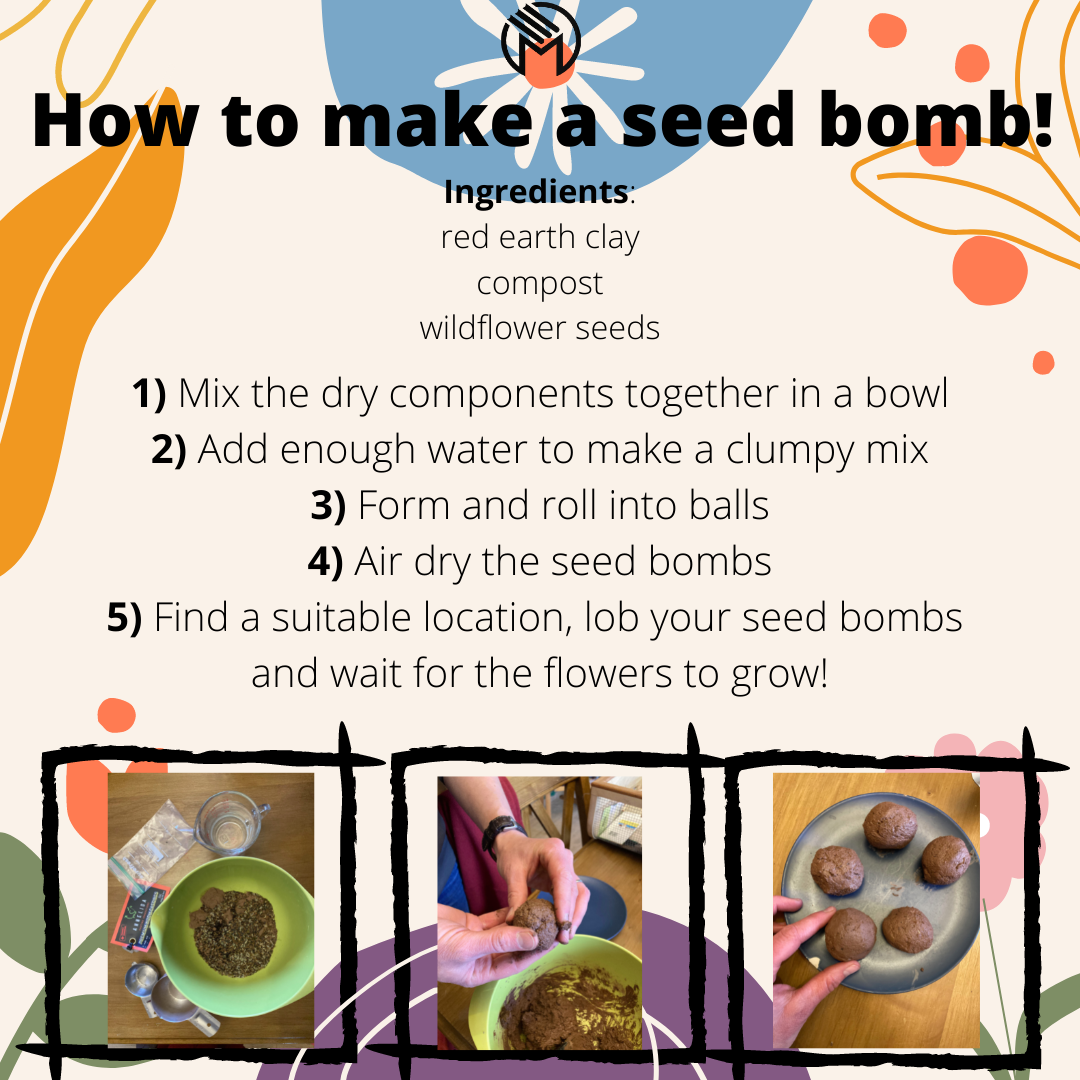
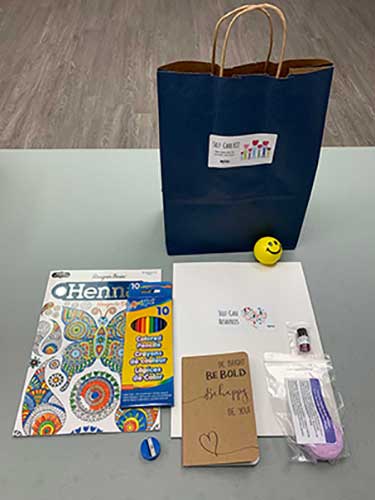
Indigenous communities
Funding of projects through the COVID Community Roots program in both 2021 and 2020 impacted many Indigenous communities, both directly and indirectly.
One example is the Fort McKay Women’s Association, which works closely with the Fort McKay First Nation and Fort McKay Wellness Center to deliver programs, free of charge, to children and youth in the community. Our grant helped them to modify their After School Program and Structured Evening Programs to align with COVID-19 health and safety measures. They hosted in-person programs in the form of several small cohorts of up to six participants and used the funding to help purchase personal protective equipment, hand sanitizer and gloves and additional supplies, such as sports equipment, arts and crafts supplies, games, toys, tables and chairs, to eliminate any sharing of equipment. They were also able to support those unable to participate in person through virtual programing. By creating a sustainable way to deliver their programs to Indigenous children and youth through the course of the pandemic, the Fort McKay Women’s Association was able to boost social well-being and positive mental health in their community.
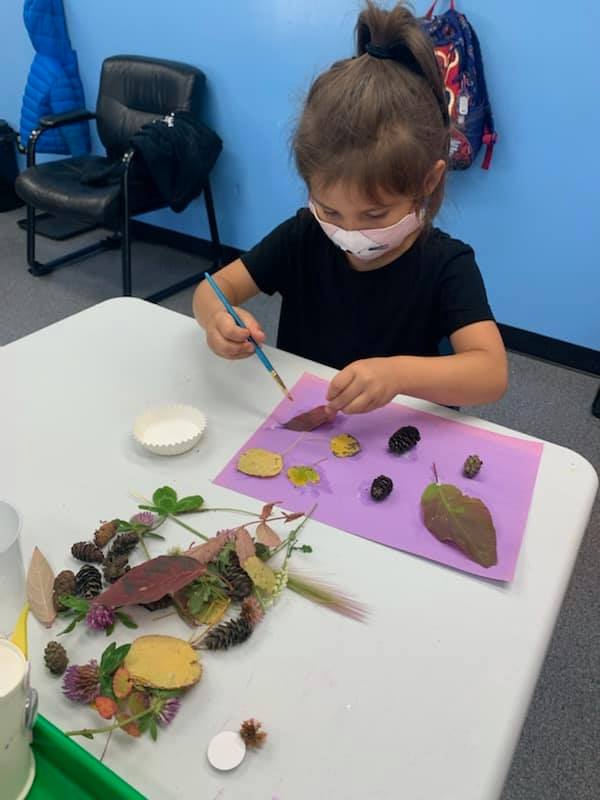
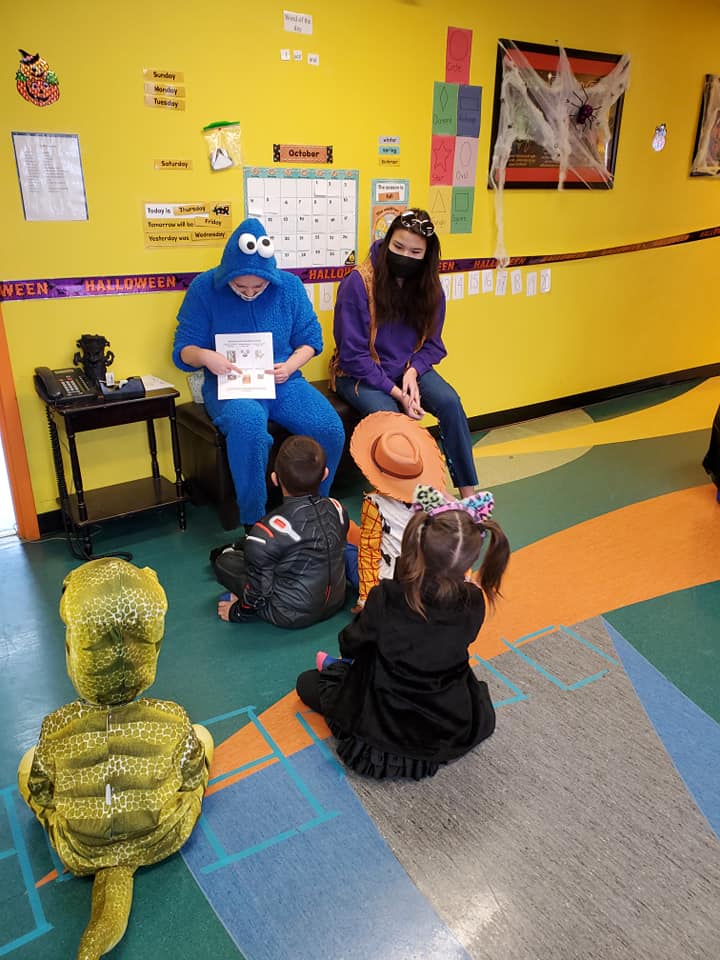
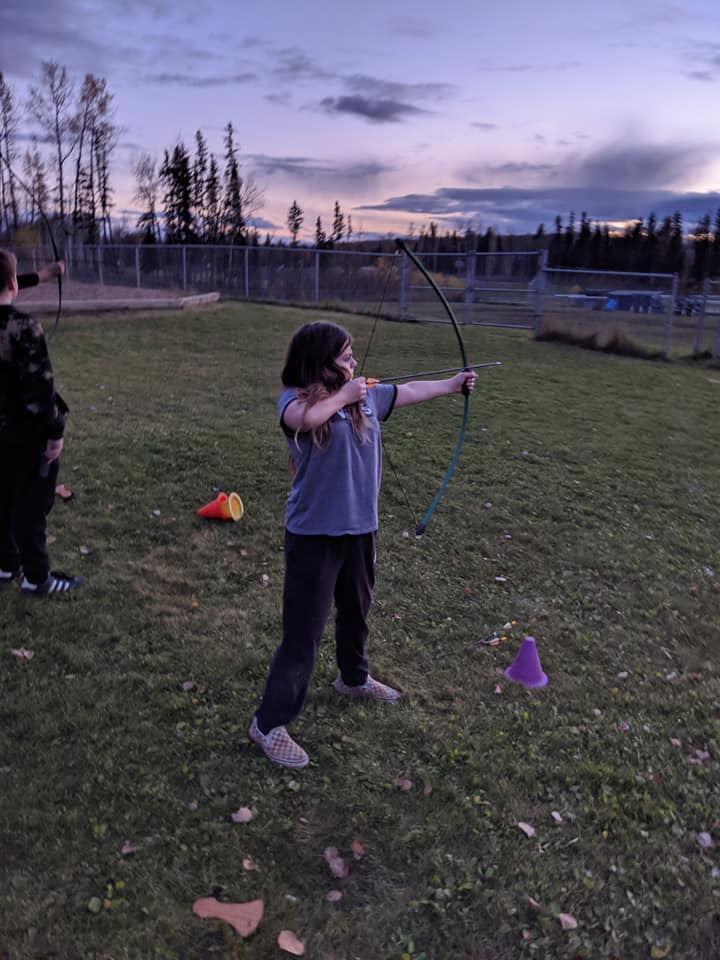
The Hinton Friendship Centre used the awarded funds to help purchase pop-up tents, supplies, crafts, plates, cutlery, water bottles and PPE for their Play in the Park program, which focused on keeping youth connected to their Indigenous culture and promoting healthy lifestyles and recreation. This program served more than 260 people, including urban and vulnerable Indigenous youth and populations, as well as traditional Elders and Indigenous families. Youth were able to safely connect to Elders through Zoom for traditional teachings, crafts, mental health resources and outdoor activities. Funding also allowed the Hinton Friendship Centre to safely reopen when public health restrictions allowed and even host a small Sunrise Ceremony with an Elder in Jasper. Through connection, the youth and Elders gained important experiences and memories and felt reconnected to the land and their culture.
Meanwhile, Athabasca Chipewyan First Nation used the awarded funds to help start an online Zoom hip-hop class for youth in Fort Chipewyan, which ran twice a week with a registered dance instructor and gave more than 25 participants something to look forward to while keeping them healthy and engaged. They hired a lead dance instructor from the McDonald Island Dance Academy who was also studying movement therapy and could, therefore, provide both physical and mental health guidance. This virtual program introduced children to the world of dance and taught them how to express themselves through movement and physical activity.
Learn more about the projects that were funded as part of the COVID Community Roots Program.

